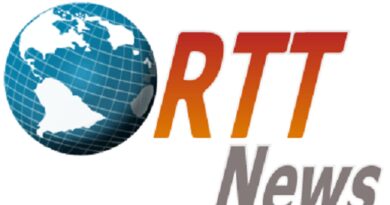EU Eyes Dollar’s Global Dominance in a Bid to Bolster the Euro
In this article
The European Union will unveil its plan on Tuesday to strengthen the international role of the euro as it seeks to erode the dominance of the U.S. dollar and to insulate the bloc from financial risks, including U.S. sanctions.
The European Commission blueprint will outline how the region can fortify its economic and financial resilience by bolstering the single currency’s architecture and through growing markets like green finance, according to a draft of the plan seen by Bloomberg.
Calls to boost the bloc’s autonomy have been growing for years and gained steam after the U.S. imposedsanctions against Iran that would also punish European banks, companies and people who do business with the Islamic republic. The commission’s plan reflects increasing pressure by member states for the EU to adopt tools that will allow it to pursue its foreign-policy goals with less recourse to an unpredictable U.S. ally.
“The extra-territorial application of unilateral sanctions by third countries has seriously affected the EU’s and its member states’ ability to advance foreign policy objectives, to honor international agreements and to manage bilateral relations with sanctioned countries,” the draft document says. “At times, unilateral actions by third countries have compromised legitimate trade and investment of EU businesses with other countries.” The plan also includes measures to help protect against currency shocks, and allow greater scrutiny of foreign takeovers, according to the draft.
Volatile Ally
The initiative to boost the role of the euro was first put on the EU’s agenda by former European Commission President Jean-Claude Juncker, who, faced with an erratic partner in Washington, called for steps to shield the region’s economies and currency from volatility elsewhere in the world. It was during Juncker’s term, in 2018, that President Donald Trump pulled the U.S. out of the international accord that restricted Iran’s nuclear program and reimposed sanctions.
According to the European Central Bank, the euro remains the second most-used currency in the world behind the dollar. But despite the latest push, there’s little the EU can do in terms of policy or legislative initiatives to meaningfully boost the use of its currency.
A main focus for the EU will be to complete flagship projects that will better unify its banking sector and capital markets. These initiatives have stalled, however, often due to entrenched disagreements between governments.
Yet the EU thinks its landmark recovery fund, designed to help countries rebound from the pandemic-induced recession, could help buttress the euro. The stimulus package will provide 750 billion euros ($905 billion) in grants and loans, raised by jointly backed debt, while a third of these funds will have to be spent toward green projects.
Sustainable Finance
“Promoting sustainable finance is an opportunity to develop EU financial markets into a global ‘green finance’ hub, bolstering the euro as the default currency for the denomination of sustainable financial products,” the draft plan said. That would boost the EU’s share of global green bond issuances, which in 2019 amount to almost half the total, according to the document.
Another development that could also prove a game changer in that area is the ECB’s push for the introduction of a digital euro, the paper said. “Further development of the European digital finance sector will reinforce the EU’s open strategic autonomy in financial services and the capacity to protect the EU’s financial stability and values.”
Brexit is also pushing the EU to bolster its financial infrastructure. The commission stepped up pressure on companies to move parts of their derivatives-clearing business from London to inside the EU. It will set up a working group to assess possible technical issues that could pose an obstacle in this regard, it said.
“We need a clear step-by-step masterplan that helps key financial sector businesses move from the United Kingdom to the European Union,” said Markus Ferber, a lawmaker in the European Parliament. “A mere ‘wait and see’ approach will not do to bolster European financial markets.”
— With assistance by Alexander Weber, and Paul Gordon
Source: Read Full Article

